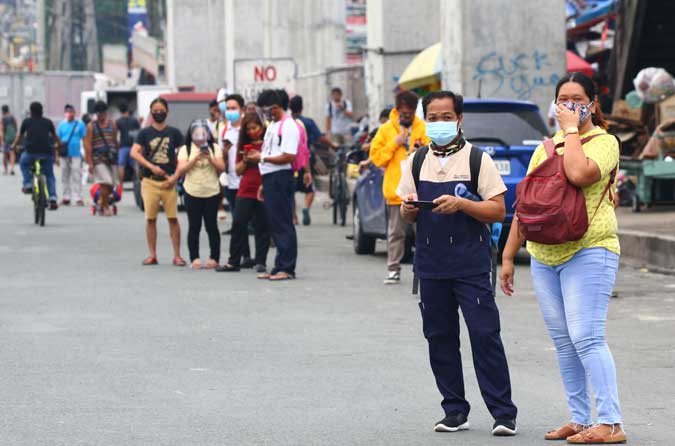
SOUTHEAST ASIA could lose up to $322.2 billion in economic output next year due to the continuing fallout from the pandemic, with the Philippines among the leading losers in the tourism and services industries, the Asian Development Bank (ADB) said.
“The pandemic generated enormous economic losses and our updated results (show an impact not just in) 2020, but we see that 2021 will also be adversely affected,” the bank’s Chief Economist Yasuyuki Sawada said during an ADB Institute webinar Tuesday.
According to his presentation, the region stands to lose at least $260.6 billion in economic output and $364.3 billion on the high side of the estimate range for 2020 due to the coronavirus crisis. Such losses are equivalent to 8.9-12.4% of nominal gross domestic product (GDP).
Next year’s estimated losses could be the equivalent of 5.4-11% of GDP, he said.
The estimates were based on an upcoming policy brief by the ADB, “The Impact of COVID-19 on Developing Asia: The Pandemic Extends into 2021.”
Mr. Sawada said tourism-dependent economies will continue to suffer outsized losses next year due to weak travel demand, as will those dependent on the services sector. The Philippines, Cambodia and Thailand will be Southeast Asia’s top losers in terms of tourism and services, he said.
The Philippines will also see a large drop-off in domestic tourism demand, while Cambodia and Thailand are projected to suffer more severely.
He said the services sector will continue to post the largest losses next year overall, with the Philippines, along with Cambodia and Thailand, to lead the region in declines for the segment.
The business, trade, personal and public services sectors, as well as manufacturing, utilities and construction, are the likeliest to sustain the heaviest losses in the Philippines next year, he said.
Globally, overall potential output losses could hit up to $7.588 trillion or 8.8% of GDP by year’s end, and up to $5.557 trillion or 6.5% of GDP in 2021, according to the ADB.
“While we do expect developing Asia to rebound strongly by 6.8% next year, we cannot anticipate a V-shaped recovery, as it will take some time for countries to recover to pre-pandemic levels of GDP growth,” ADB President Masatsugu Asakawa said in the same forum.
Fear, uncertainty and border closures during the pandemic have dampened economic output, pushing some, including the Philippines, into recession.
Small businesses are also among the hardest hit sectors, and lack of government support can worsen the damage to the sector, said Raghuram Rajan, a Finance professor at the University of Chicago’s Booth School, who served as governor of the Reserve Bank of India in 2013-2016.
Mr. Rajan said the government’s assistance to the sector, along with that provided by Mexico and developing countries in South Asia and Africa, has been “fairly limited,” causing outsized damage to the sector during the lockdown.
“Over and above the damage done by the virus is a damage done by the lack of relief which effectively will make the overall hit to potential growth of these countries significantly larger,” he said.
“Which is why it is really important, especially if you are a poor country, to ensure that the repair and reallocation is done as effectively as possible given the limited resources that these countries have so that the recovery is stronger than it might otherwise be, but also sustained over a longer period,” he added.
Around 73% of micro-, small-, and medium-sized enterprises in the Philippines shuttered operations during the lockdown in April and their access to financing was limited, restricting their ability to raise working capital, the ADB has estimated. — Beatrice M. Laforga

